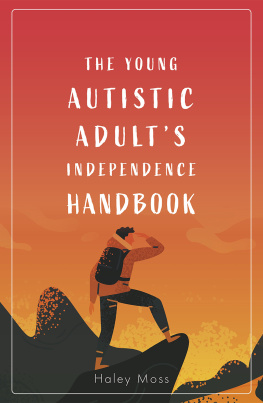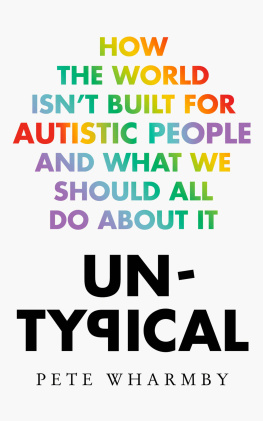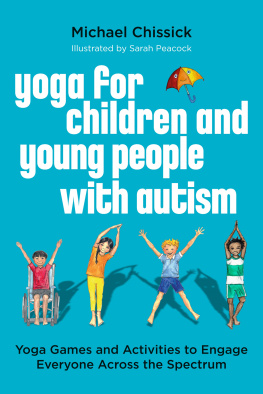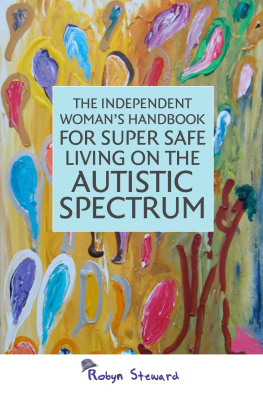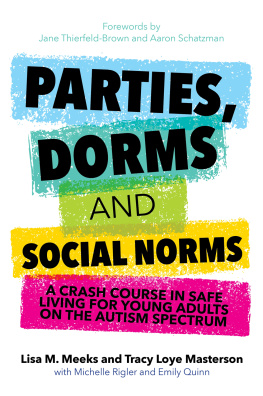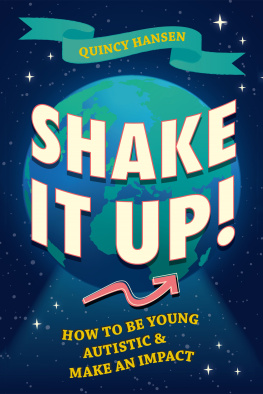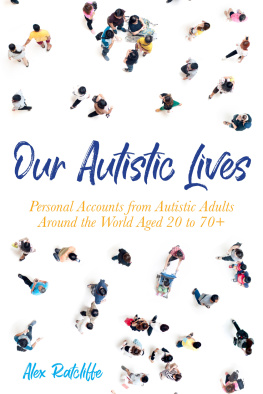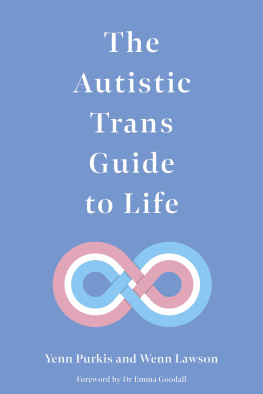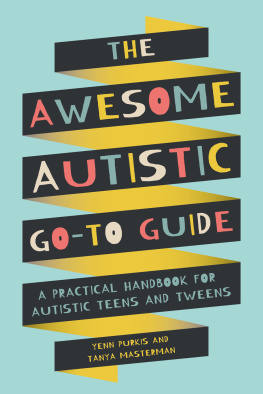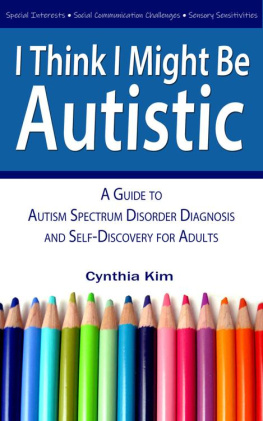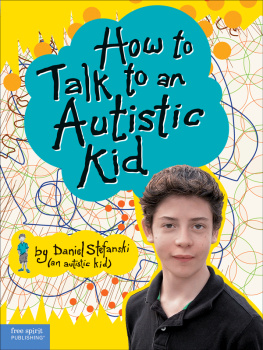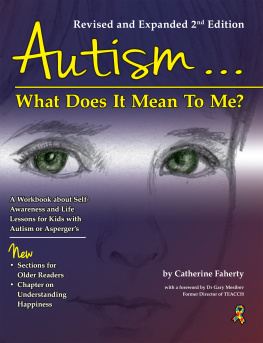Contents
Page list

by the same author
A Freshman Survival Guide for College Students with Autism Spectrum Disorders
The Stuff Nobody Tells You About!
Haley Moss
ISBN 978 1 84905 984 8
eISBN 978 0 85700 922 7
of related interest
The Autism and Neurodiversity Self Advocacy Handbook
Developing the Skills to Determine Your Own Future
Barb Cook and Yenn Purkis
ISBN 978 1 78775 575 8
eISBN 978 1 78775 576 5
Successful Social Articles into Adulthood
Growing Up with Social Stories
Dr Siobhan Timmins
Foreword by Carol Gray
ISBN 978 1 78592 138 4
eISBN 978 1 78450 403 8
Sex, Drugs and Aspergers Syndrome (ASD)
A User Guide to Adulthood
Luke Jackson
Foreword by Tony Attwood
ISBN (HB) 978 1 84905 645 8
ISBN (PB) 978 1 78592 196 4
eISBN 978 1 78450 139 6

First published in Great Britain in 2022 by Jessica Kingsley Publishers
An Hachette Company
Copyright Haley Moss 2022
The right of Haley Moss to be identified as the Author of the Work has been asserted by her in accordance with the Copyright, Designs and Patents Act 1988.
Front cover image source: Shutterstock
All rights reserved. No part of this publication may be reproduced, stored in a retrieval system, or transmitted, in any form or by any means without the prior written permission of the publisher, nor be otherwise circulated in any form of binding or cover other than that in which it is published and without a similar condition being imposed on the subsequent purchaser.
A CIP catalogue record for this title is available from the British Library and the Library of Congress
ISBN 978 1 78775 757 8
eISBN 978 1 78775 758 5
Jessica Kingsley Publishers policy is to use papers that are natural, renewable and recyclable products and made from wood grown in sustainable forests. The logging and manufacturing processes are expected to conform to the environmental regulations of the country of origin.
Jessica Kingsley Publishers
Carmelite House
50 Victoria Embankment
London EC4Y 0DZ
www.jkp.com
I have so many people to thank for their love, input, support, and positivity before and throughout this process.
Without my family, nothing would be possible, and I do not know where I would be. Thank you to my parents, Rick and Sherry Moss, for all you do each day for me and for our family. I love you so much, and writing this, like anything else I write, is a testament to you. Thank you for always believing in me. You cheered me on every single day without fail and I hope you recognize how much of your love went into this book. Thank you to my Aunt Sandy and Uncle Sam, Aunt Cathy and Uncle Scott, my grandfather Howard, and my other Aunt Sandy, for their unwavering love and support.
I must also thank the many folks who responded to my questions or agreed to speak with me for interviews and helped give me some expert perspectives. My knowledge is not fully complete, and I learned so much from each of you. Thank you to Doug Blecher, Dr Elizabeth Shea, Karla Helbert, and to so many others for your ideas, time, expertise, and support.
And, of course, my eternal thanks and gratitude to you, the reader, for sticking with me and for taking the time to read my thoughts and advice. You are ready for the world; the world better be ready for you.

A dulthood is a time of transition where we grow as people, discover new things about ourselves, establish new habits and routines, and begin creating the lives we want to live. There are little transitions we make every day, like waking up and getting out of bed to eating breakfast, getting dressed, and heading off to work or school. There are also big transitions we make in life as young adults, like perhaps getting an apartment for the first time, graduating from school, and getting a new job. These transitions can be especially overwhelming to deal with as a young autistic adult. As young autistic people, we might be used to having others constantly guiding us and planning our lives, or be so set in our ways from being high school students or afraid of change, that any change of routine or plan can be enough to send us straight into meltdown city because of the uncertainty it brings.
There is also the hope many young autistic adults feel with the promise of independence and the chance to chase their own dreams, on their own terms. The world is full of infinite possibilities for young adults embarking on their journeys of self-discovery and independence. Autistic young adults deserve and are entitled to the same opportunities to find themselves and create lives for themselves where they feel valued, experience joy, and are able to be their authentic selves without feeling afraid. When I first moved four hours away from home for college, I remember the excitement over having new experiences like possibly finding new friends, exploring a new town, and learning what I wanted to do with my life when I grew up and graduatedall compounded with the nervousness of leaving home, possibly feeling homesick, or not knowing how to do adult things like actually take care of myself without my parents nagging me to dry my hair or eat three meals a day.
This book can hopefully make some parts of that journey through adulthood easier, or at least serve as a roadmap. Were often thrust into autistic adulthood with little expectation of how to manage our neurodivergent identitywere told there is a very specific, neurotypical lens that we must follow to be successfully independent, responsible, dependable, well-adjusted, healthy, social, and law-abiding. However, there is no one specific way to be any of those things, and society does not often consider the way autistic people move throughout the world.
This book aims to empower young autistic people and give a little bit of guidance to not just surviving the adult world, but also doing it in a way that validates and affirms their authentic autistic selves, along with some advice from more adult autistic and allied neurotypical experts alike to add a little bit of knowledge into the toolbox for a successful transition to adulthood and young adult life.
W hen I was 18 years old and getting ready to go off to college at the University of Florida, the idea of being independent sounded like a huge responsibility and an exciting journey to embark on. As someone who can count on one hand how many sleepovers they have had at friends houses, and who never went to sleepaway (holiday) camp or stayed overnight with relatives, moving out and living in a tiny on-campus dorm room with another student was clearly supposed to feel like it would be the top of Independence Mountain.
It wasnt. I felt somewhat lost, actually.

